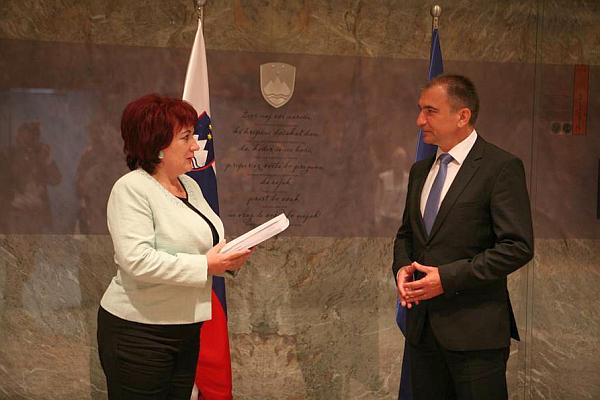
In her comprehensive report the ombudsman establishes that the state is not always in the service of people, and invites all the state authorities to unconditionally respect human rights.
At the occasion of issuing the annual report the ombudsman Vlasta Nussdorfer in her public statement warned against unaccomplished legislation passed in haste, which among other consequences brings violations of human rights. She added that the economic crisis should not be a cause for fast and thoughtless changes in legislation, and reduction of human rights. She appealed that in spite of the crisis the assured levels of social and health protection must not be reduced, nor some of the social aid programmes abolished.
She mentioned the inaccessibility of free legal aid, and the unacceptably long duration of administrative and legal proceedings, as Slovenia has been characterised as a violator of human rights for arbitration within a reasonable time more than 250 times. She believes the supervisory mechanisms of the state lack efficiency.
Nussdorfer considers as the most serious issue the violation of rights of many workers; she has been regularly warning Anjo Kopač Mrak, Minister of Labour, Family, Social Affairs and Equal Opportunities about the problem, and the social distress of quite a substantial part of the citizens.
No improvement regarding housing policy
She has noticed no progress at the systemic level in solving the housing problems of the inhabitants, and she expects a more active participation of the state. She also warned about violation of rights arising from Aarhus convention, rights to access to information and participation of the public in environmental decisions, and some other questions regarding the right to a healthy environment.
As far as health care is concerned, she warned that the health reform is becoming more and more distant as the years go by, and the unstable leadership of the Ministry of Health is reflected in the state's attitude towards the efficient, quality and accessible health system. The rights of the disabled must be entirely realized, and she stressed that more should be done for children with special needs.
The ombudsman also expects the state to do everything in its power to facilitate the settlement of rights of the erased, and to settle suitable compensation. She also expects the most responsible representative will manage an apology for the illegal, unconstitutional, and completely unacceptable act of erasure.
Monument for victims
She warned the state that the human dignity of victims of the post-war out-of-court processes (and their relatives) must be respected. The state has the responsibility to discover the known locations of the mass graves in Slovenia. A symbolic burial of the remains of the victims must be assured, and a suitable monument erected, while the relatives must be given the opportunity for a proper parting.
The telephone numbers of the ombudsman office show that more and more people call their toll-free number (in 2012: 8.701, and in 2013: 10.875 calls), there are more visits at the headquarters of the institution, and more conversations with people all over Slovenia. Last year the employees of the office visited the field 13 times, and held 291 conversations with people, while the ombudsman received approximately 150 people for a personal conversation.

































































